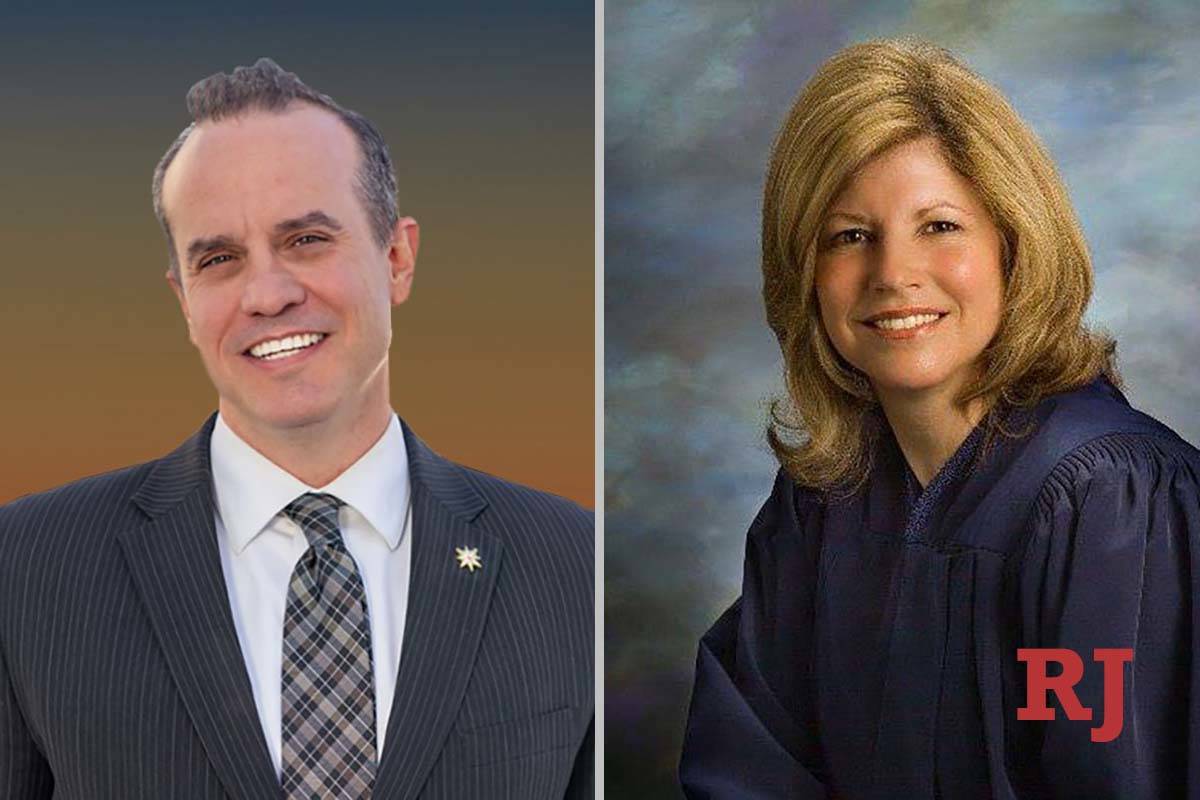Attorney Nadig challenging Judge Johnson in Dept. 22
An attorney is taking on incumbent Judge Susan Johnson in District Court Department 22.
Attorney Ben Nadig, who owns his own firm, and Johnson, who was first elected in 2006 and re-elected in 2008 and 2014, took part in a candidate debate with the Review-Journal.
Johnson was questioned about her political bias after several complaints were filed against her for comments she made to two people, indicating that if they successfully completed their probation, they would be able to vote for President Trump.
She explained she was telling them that their civil rights would be restored if they met all the conditions of their probation.
“I made a joke, I basically said that what that means that you will have the right to get your vote back, meaning that in the next election, you could vote for Mr. Trump if you wanted to. They, everyone laughed, the defendant laughed,” she said. “I also made a comment that they would be able to serve on a jury. Well, the defendant laughed and everybody else in the courtroom laughed. I was just trying to be encouraging and humorous and nothing more.”
When it comes to protests and private property, both candidates believe protesters and property owners have rights that can be balanced.
“I think that the (U.S.) 9th Circuit (Court of Appeals) has pretty much laid out the law of the land and the law is you are free to exercise your rights as long as you allow the business to function,” Nadig said. “And so as long as the business can function, I have no problem with people protesting on a sidewalk.”
Johnson added that businesses that cede property to the city on which to build sidewalks lose the ability to claim it as private property, and protesters can freely exercise their first amendment rights.
Systemic racism exists
Protests have been sparked lately because of the issue of systemic oppression, which both candidates agree exists.
“I am mindful that statistically black Americans make up a disproportionate number of inmates, probationers and parolees,” Johnson said. “And when any defendant comes before me I take into consideration that potential systemic racism, such as social factors, contributing to the accused behavior when judging him guilty or her guilty and evaluating the potential for rehabilitation. I also need to ensure that any implied bias or prejudice does not affect my sentence.”
Although the candidates agree on the matter, Nadig disagreed with Johnson. He pointed out that judges saying “I’m just here to judge you, I’m not the person who charged you,” are ignoring the importance of their position in the process.
“The reason I do [appointed work] is because I’m committed to making sure that all people have access to competent attorneys who will take care of them. And I want to do the same thing on the bench,” he said. “It’s not a question of, ‘well, it’s just the charts, that’s the code that comes in front of me,’ it’s ‘how did we get here?’ And that is a very very important question as a judge.”
Handling litigants
When treating difficult litigants in court, Johnson said she handles them with “respect and kindness,” and they reciprocate that respect and kindness.
“Of course you do get the crazies, and there’s really nothing you can do about that because some of those people, seriously have some mental issues,” she said. “But I find that if you try to treat them professionally… it diffuses the situation, and they do just fine. In fact, I don’t think I’ve had any litigants that have been just overly unmanageable.”
Nadig has worked with the mental health court for the city of Las Vegas for the past year and a half, he said, and it takes patience and respect. He has 14 years of experience and has practiced in several areas of law.
“I am here to take care of people, and most importantly, to take partisanship off the bench, I’m about equal access, and I’m about a fair shake for everybody,” he said in his closing statement.
Contact Jannelle Calderon at jcalderon@reviewjournal.com. Follow @NewsyJan on Twitter.






















